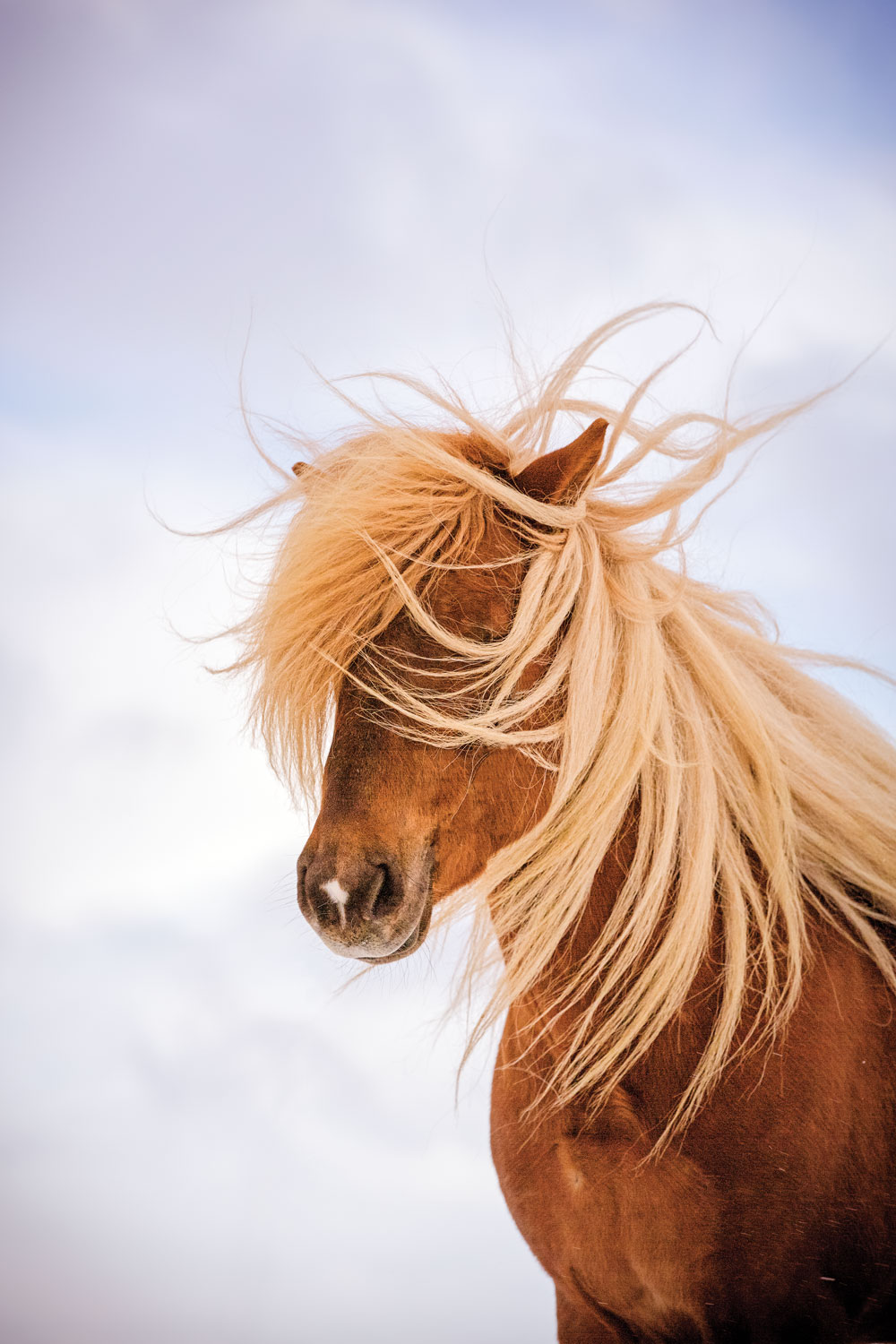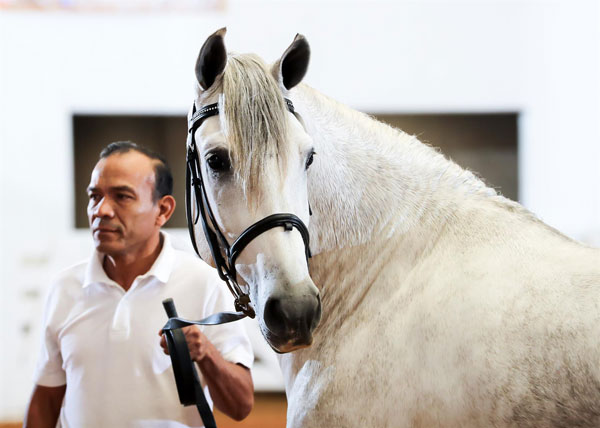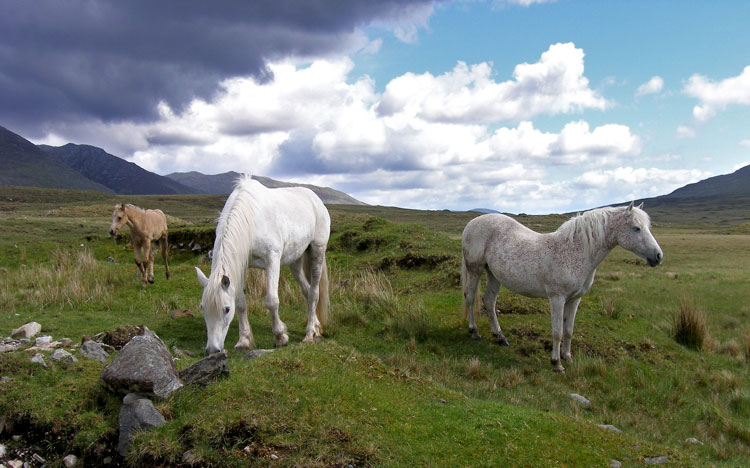The domestic horse has changed a lot over the past several thousand years. The small, dun-colored equines seen in prehistoric paintings have been mostly replaced with sleek, fine-boned steeds that stand several hands taller than their ancestors. But some horses have retained a handful of those ancient equine characteristics. Take for example the Norwegian Fjord, one of the world’s oldest horse breeds.
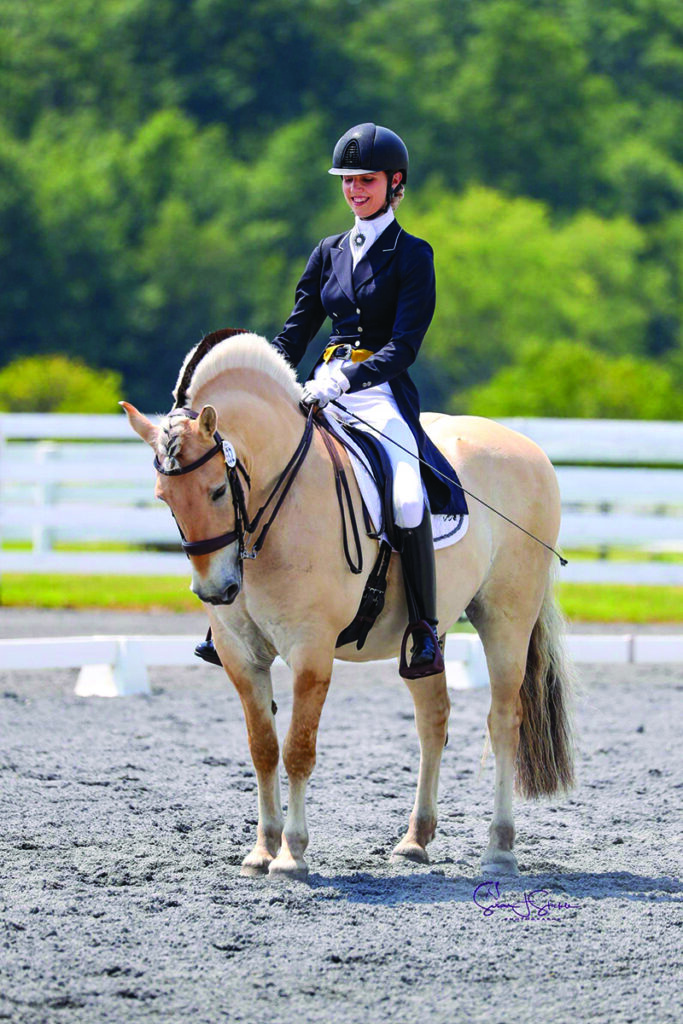
Orgonne, owned by Wendy Luscombe and ridden by Koryn Doolittle, competes in dressage at the Prix St. Georges level. Photo courtesy Susan J. Stickle/Wendy Luscombe.
The Viking Past of the Norwegian Fjord Horse
Historians believe the ancestors of today’s Norwegian Fjord Horse first appeared in Norway during the Ice Age. These horses were domesticated about 4,000 years ago and went on to become the horse of the Vikings. Archaeological excavations at Viking burial sites show that Fjord Horses were often buried alongside Vikings of high status.
Over the centuries that followed, the Fjord was used in Norway mostly as a draft horse, working the fields and clearing the countryside of timber to make room for farms and villages. The Fjord was also used as a saddle and pack horse and was known for its hardworking temperament.
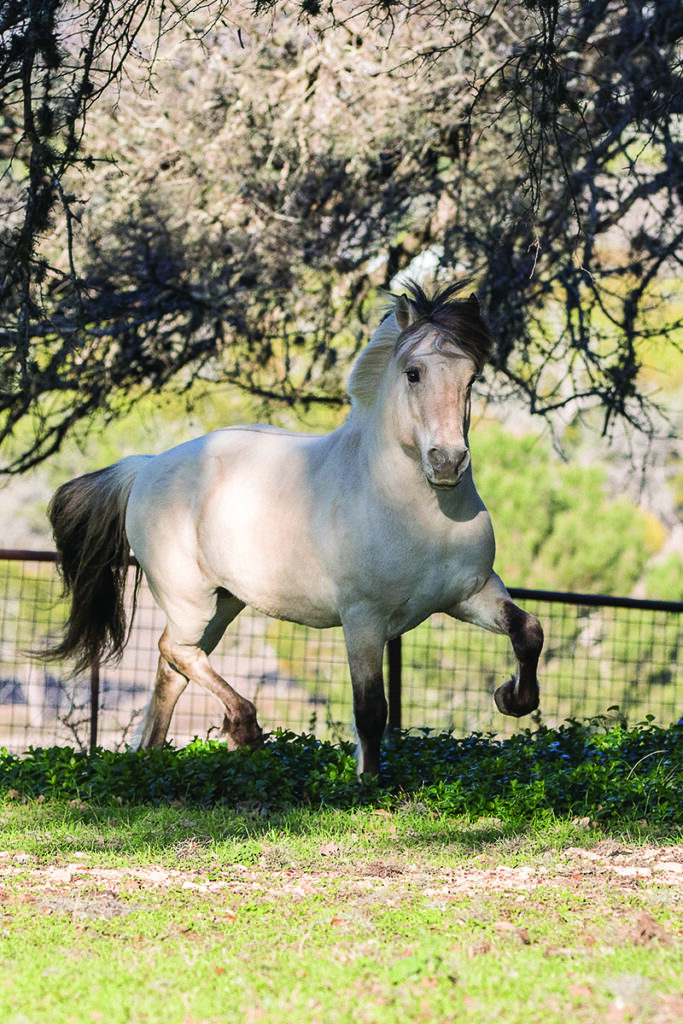
The stallion Bastian Vom Oderhaff, owned by Kelly White, is a rare white dun. Photo courtesy Genie Images.
In the middle of the 19th century, an organized breeding program was established for the Fjord in Norway. Farmers with Fjord Horses began keeping records of the owners and colors of various Fjords born during this period. In 1910, an official studbook was published to make record-keeping more precise. The first stallion listed in the book was Rosendalsblakken 1, a horse born in 1857.
In the 1950s, Americans discovered the beauty and durability of the Norwegian Fjord and imported 22 quality Fjords into the country. American aficionados of this tough little horse began breeding them, and in 1978, the Norwegian Fjord Horse Registry (NFHR) was formed in the states. The organization’s goal was to register the Fjord and preserve its purity and original type in America.
Today, around 6,900 Norwegian Fjords are registered in the United States with the NFHR. The breed is growing in popularity—not only in the U.S., but also around the globe. Fjord registries can be found throughout the world, and right now, around 6,000 Fjords live in the breed’s native country.
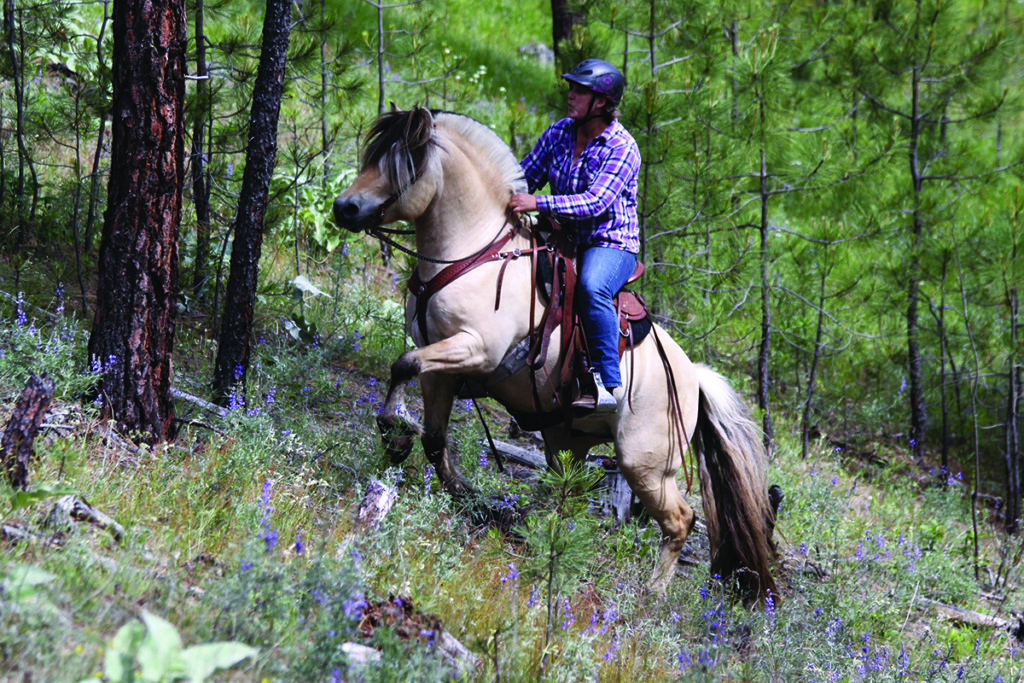
Skogheims Viljar is a white dun imported from Norway, owned and ridden by Solveig Pedersen. Photo courtesy Ingrid Watanbe.
Today’s Fjord in the U.S.
Norwegian Fjord Horses have a unique look that harkens back to their prehistoric ancestry. In addition to their willing temperament, their appearance is their most well-known characteristic. Nearly 90 percent of all Fjord Horses are brown dun in color, with the other 10 percent being red dun, gray, white or the very rare yellow dun.
The Fjord’s “wild” dun color comes with primitive markings like zebra stripes on the legs, and a dorsal stripe that runs from the forelock down the neck and back and into the tail. Some Fjords also have dark stripes over the withers.
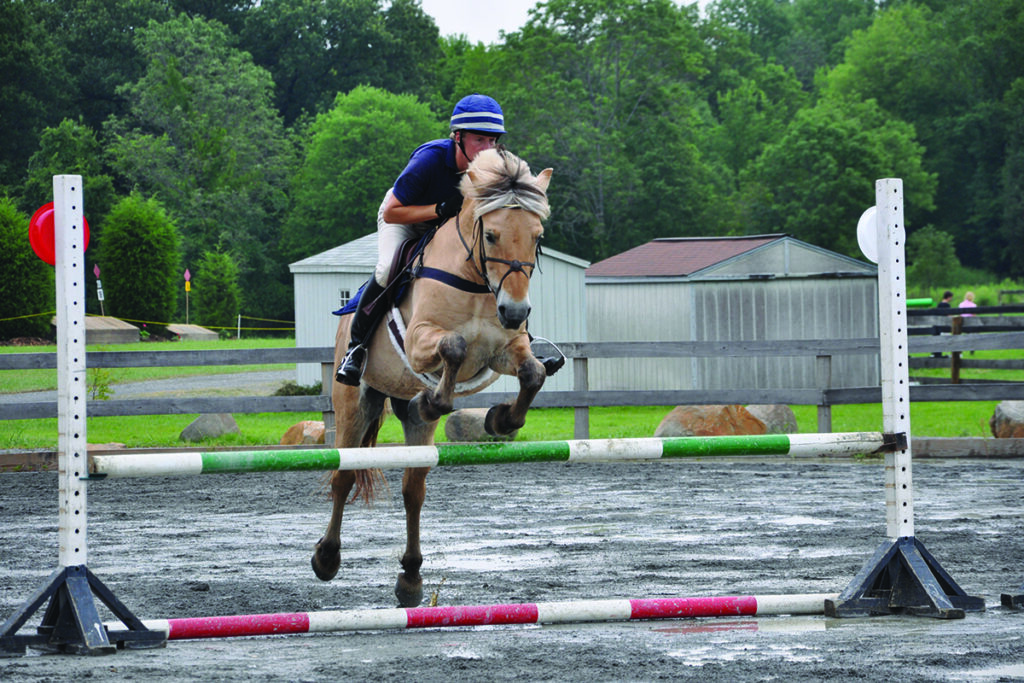
Ironwood Blitzen, a stallion owned by Tom Snyder, competes in eventing. Photo courtesy Tom Snyder.
Norwegian Fjords also have a unique mane. The center hair of the mane is dark—usually black—while the outer hair is white. Many Fjord owners cut the mane short so it will stand erect, and trim it in a characteristic crescent shape to emphasize the graceful curve of the horse’s neck. The white outer hair is then trimmed slightly shorter than the dark inner hair to display the dramatic dark stripe.
Norwegian Fjords do more than just look good. They are hardy mounts and easy keepers and can work for hours on end if properly conditioned. Fjords are currently excelling in many disciplines, including western riding, cattle work, jumping, eventing, dressage, combined driving and vaulting. Fjords are popular as trail mounts and are used in competitive trail riding. Although they are small, they are a good choice for riders of all ages.
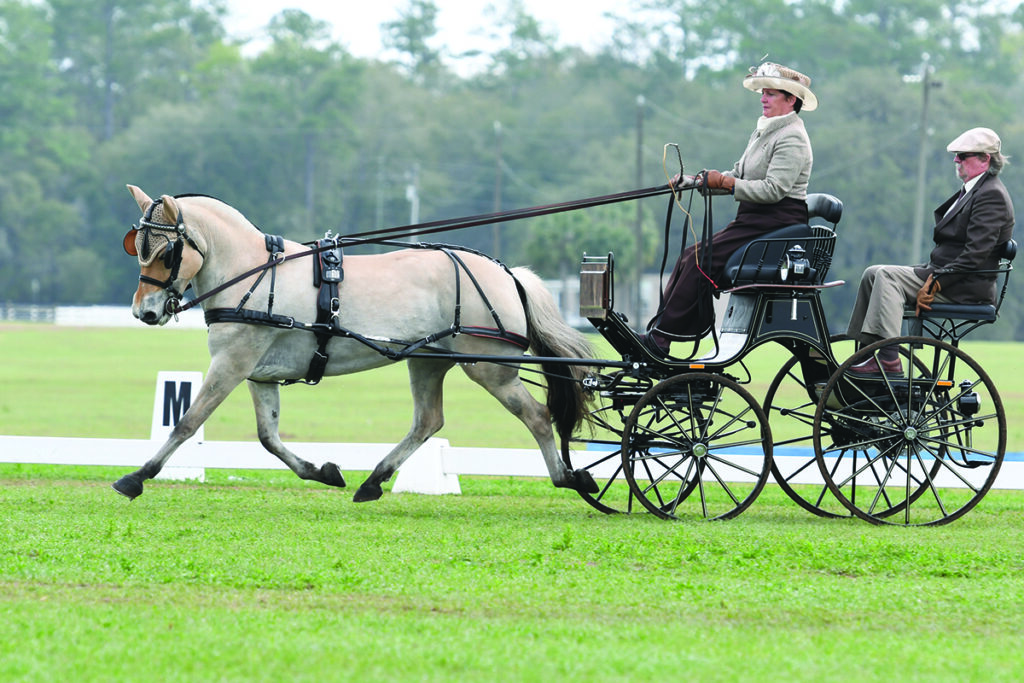
Sweetwater’s Zorah Belle, owned by Teressa Kandianis and driven by Leslie Berndl, competed at the 2019 FEI World Driving Championships for Ponies. Photo courtesy picsofyou.com.
The NFHR holds periodic evaluations for the breed, where individual horses are compared to the breed standard and given performance tests. Qualities such as disposition, character and willingness to work are evaluated. The evaluation is voluntary and designed to be an informational and educational tool for owners, breeders, buyers and handlers of the Norwegian Fjord.
Through the evaluation program, the NFHR hopes to preserve all five colors of the Fjord Horse breed as well as the diversity in the breed’s conformation; some Fjords have a heavier body while others are lighter-framed.
With its somewhat prehistoric appearance, fascinating history and gentle temperament, the Norwegian Fjord is a truly exceptional breed that will continue to grow in numbers. As time goes on, even more equestrians are bound to discover the joys of this special little horse.
Norwegian Fjord Fast FactsHeight: 13.1-14.3 hands Color: Brown dun, white dun, gray, red dun, and yellow dun Overall Appearance: Head is medium-sized and well-defined with a broad, flat forehead and straight or slightly dished face. The eyes are large. Ears are small and alert. the neck is well muscled and crested. The body is short-coupled with good depth, large heart and girth, and well-developed muscles. The legs are powerful, with substancial bone. Learn more by visiting the Norwegian Fjord Horse Registry. |
This article about the Norwegian Fjord originally appeared in the September 2021 issue of Horse Illustrated magazine. Click here to subscribe!


